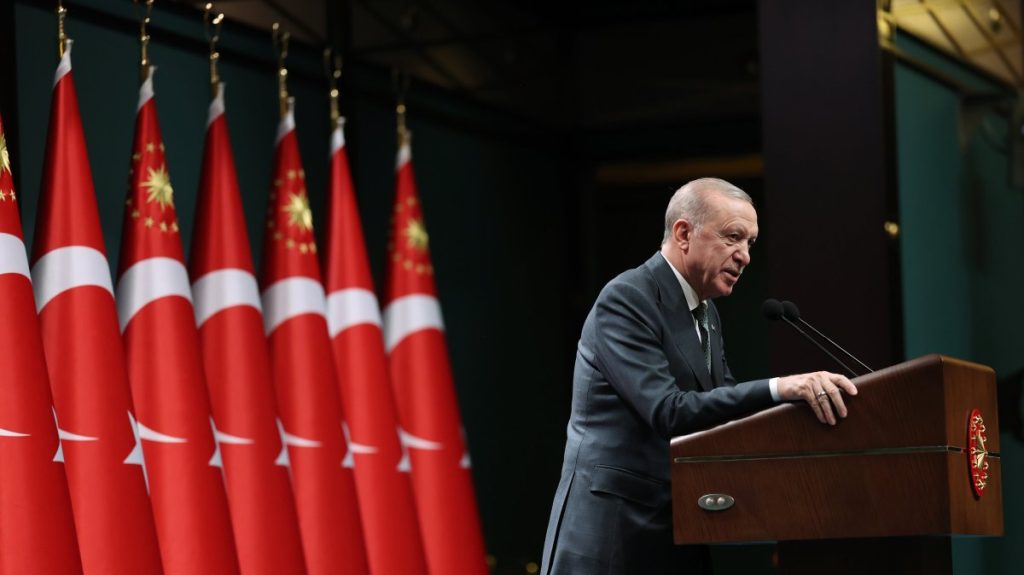President Recep Tayyip Erdoğan will travel to Italy on April 29 to meet with Prime Minister Giorgia Meloni and attend a business forum, according to a Turkish business association.
Erdoğan and Meloni will chair the fourth Türkiye-Italy Intergovernmental Summit and attend the Italy-Türkiye Business Forum in Rome on the same day, the Foreign Economic Relations Board (DEIK) said in an announcement on its website.
The visit has yet to be confirmed by the Turkish Presidency.
Rumors surfaced several times in recent weeks about a possible Erdoğan trip to Italy, but none were confirmed.
DEIK alleged the two leaders will address business forum where several panels, sectoral sessions and B2B meetings will take place, focusing on strategic industries such as defense, aviation and ICT innovation; infrastructure; global hubs and connectivity; sustainable energy; cyclical economy, latest technology production such as automotive and consumption goods and branding.
Last year, Meloni personally invited Erdoğan to the summit via phone call on bilateral relations, including trade.
Ankara and Rome have differing stances on Israel’s war in the Gaza Strip. Meloni argues for Israel’s right to defend itself, while Erdoğan is a staunch supporter of the Palestinian cause, but the Italian premier has expressed commitment to a cease-fire in Gaza.
Türkiye and Italy have enjoyed strengthening bilateral ties in recent years, especially in commerce. Trade volume has reached $32 billion in 2024, surpassing the previously set target of $30 billion, while industrial contracts have intensified.
Earlier this year, Italian defense giant and one of Europe’s biggest defense industry companies Leonardo and Turkish drone powerhouse Baykar signed a cooperation deal, highlighting interest in intensifying defense cooperation.
Diplomatic engagements have increased, with Erdoğan and Meloni holding frequent discussions over the phone. In the Black Sea and the Middle East, Türkiye’s mediation efforts for the wars in Ukraine and Gaza align with Italy’s priorities for regional stability.
The two NATO allies function as regional and international bridge-builders in the Mediterranean region.
Similarly, migration is also of particular interest for both nations, which lie on two major routes into the European Union for people fleeing war and poverty.


